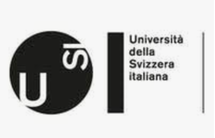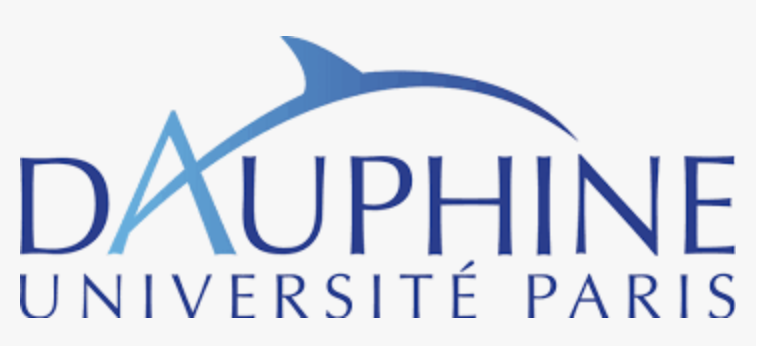End-to-end Bayesian Learning Methods
Solutions de bout-en-bout en apprentissage Bayésien
25 – 29 October, 2021
|
Scientific Committee
Comité scientifique Pierre Alquier (RIKEN AIP) |
Organizing Committee
Comité d’organisation Nicolas Chopin (ENSAE, Institut Polytechnique de Paris) contact: bayesatcirm2021@gmail.com |
|
The design and analysis of robust Bayesian methods for high dimensional statistical settings is at the cornerstone of modern real world learning problems. These approaches are appealing for their intrinsic ability to quantify the uncertainty of any statistical estimation procedure through the computation or approximation of posterior distributions, i.e., probability distributions of the unknown quantities given the available observations. They have recently attracted a lot of attention thanks to newly widespread massive computational resources and the keen interest for pivotal ap-plications which require interpretable solutions and uncertainty estimation without which inference procedures provide very few guarantees.
The scientific core of this week is to provide a rich overview of end-to-end Bayesian solutions to real world learning problems in complex settings: high dimensional parameters, storage requirements and on-the-fly solutions, controlled systems, etc. The week will highlight all aspects of such approaches from data processing and feature engineering to Monte Carlo estimation procedures as well as the most recent theroretical guarantees obtained in high dimensional settings or frameworks with dependent and/or missing data. A specific focus will be given on challenging applications to foster collaborations with domain experts to identify relevant objectives and increase the impacts of all designed algorithms and presented solutions during the week. This focus will in particular be highlighted with a Data challenge designed specifically for the week and with a dedicated session to display all interesting solutions. |
La statistique bayésienne présente un attrait multi-facettes indéniable allant de la prise de décision à la régularisation automatique. La conception et l’analyse de méthodes bayésiennes robustes pour des paramètres statistiques et/ou états de grandes dimensions sont la pierre angulaire des problèmes d’apprentissage du monde moderne. Ces approches séduisent par leur capacité intrinsèque à quantifier l’incertitude de toute procédure d’estimation statistique par le calcul ou l’approximation de distributions a posteriori, c’est-à-dire des distributions de probabilité des quantités inconnues du système compte tenu des observations disponibles. L’intérêt pour ces méthodes s’est récemment accru du fait de leur capacité à utiliser des ressources de calculs toujours plus importantes et de leur adaptabilité à des applications majeures qui nécessitent des solutions interprétables et pour lesquelles les procédures d’inférence offrent très peu de garanties en l’absence d’estimation de l’incertitude.
L’objectif de cette semaine est de fournir un aperçu détaillé des solutions bayésiennes aux problèmes d’apprentissage dans des contextes complexes : paramètres de grande dimension, exigences de stockage et solutions à la volée ou en ligne, systèmes contrôlés, etc. Elle mettra en évidence tous les aspects de ces approches, de la prise en main et du traitement des données aux procédures d’estimation de type Monte Carlo, sans oublier les résultats théoriques les plus récents ayant été obtenus dans le cadre de la grande dimension ou des données dépendantes et/ou manquantes. Un accent particulier sera mis sur les applications complexes afin de favoriser les collaborations entre experts de différents domaines, d’identifier des objectifs pertinents et d’accroître l’impact de tous les algorithmes conçus et solutions présentées au cours de la semaine. Dans cette optique, un data challenge est conçu spécifiquement pour cette école de recherche, avec une session dédiée pour mettre en avant toutes les solutions intéressantes. |
Rémi Bardenet (CNRS, Université de Lille) A tutorial on Bayesian machine learning: what, why and how
Élisabeth Gassiat (Université Paris Saclay) Bayesian multiple testing for dependent data and hidden Markov models
Invited Speakers
Florence Forbes (INRIA Grenoble Rhône-Alpes) Simulation-based Bayesian inference for high dimensional inverse problems
Anthony Lee (University of Bristol)
Éric Moulines (École Polytechnique)
Gareth Roberts (University of Warwick) Regenerative non-reversible MCMC and the Restore algorithm
Judith Rousseau (University of Oxford)
Contributed talks
Amani Alahmadi (Shaqra University) SMC ABC estimator for ODE models
Andrea Bertazzi (Delft University of Technology) Approximations of Piecewise deterministic Markov processes and their convergence properties
Hai Dang Dau (ENSAE) Waste-free Sequential Monte Carlo
Randal Douc (Telecom Sudparis) The Kick-Kac teleportation algorithm: boost your favorite Markov Chain Monte Carlo using Kac formula
Bart Eggen (Delft University of Technology) Bayesian sensitivity analysis for a missing data model with continuous outcomes
Sebastiano Grazzi (Delft University of Technology) Sticky PDMP samplers for sparse and local inference problems
Solon Karapanagiotis (University of Cambridge) Tailored Bayes: a risk modelling framework under unequal misclassification costs
Luke Kelly (Université Paris Dauphine) Coupled MCMC for Bayesian phylogenetic inference
Takuo Matsubara (Newcastle University / The Alan Turing Institute) Robust Generalised Bayesian Inference for Intractable Likelihoods
Gonzalo Mena (University of Oxford) On the choice of priors for the estimation of infection fatality rates in the absence of serological data
Marina Riabiz (King’s College London) Optimal Thinning of MCMC Output
Torben Sell (University of Edinburgh) Dimension-robust function space priors for stochastic control
Déborah Sulem (University of Oxford) Bayesian estimation of nonlinear Hawkes process
James Thornton (University of Oxford) Differentiable Particle Filtering via Entropy-Regularized Optimal Transport
Andi Wang (University of Bristol) Subgeometric hypocoercivity for piecewise-deterministic Markov process Monte Carlo methods








